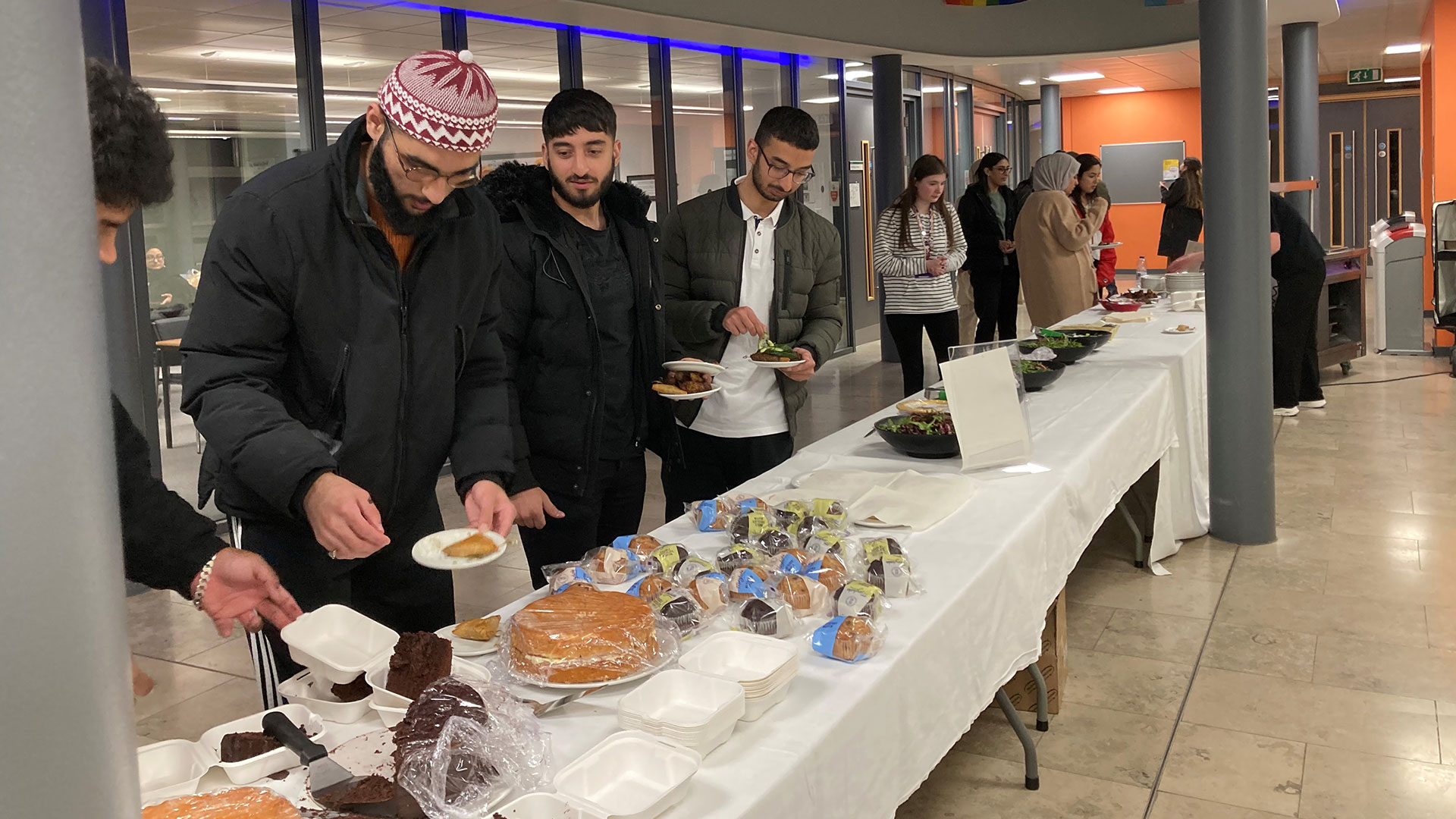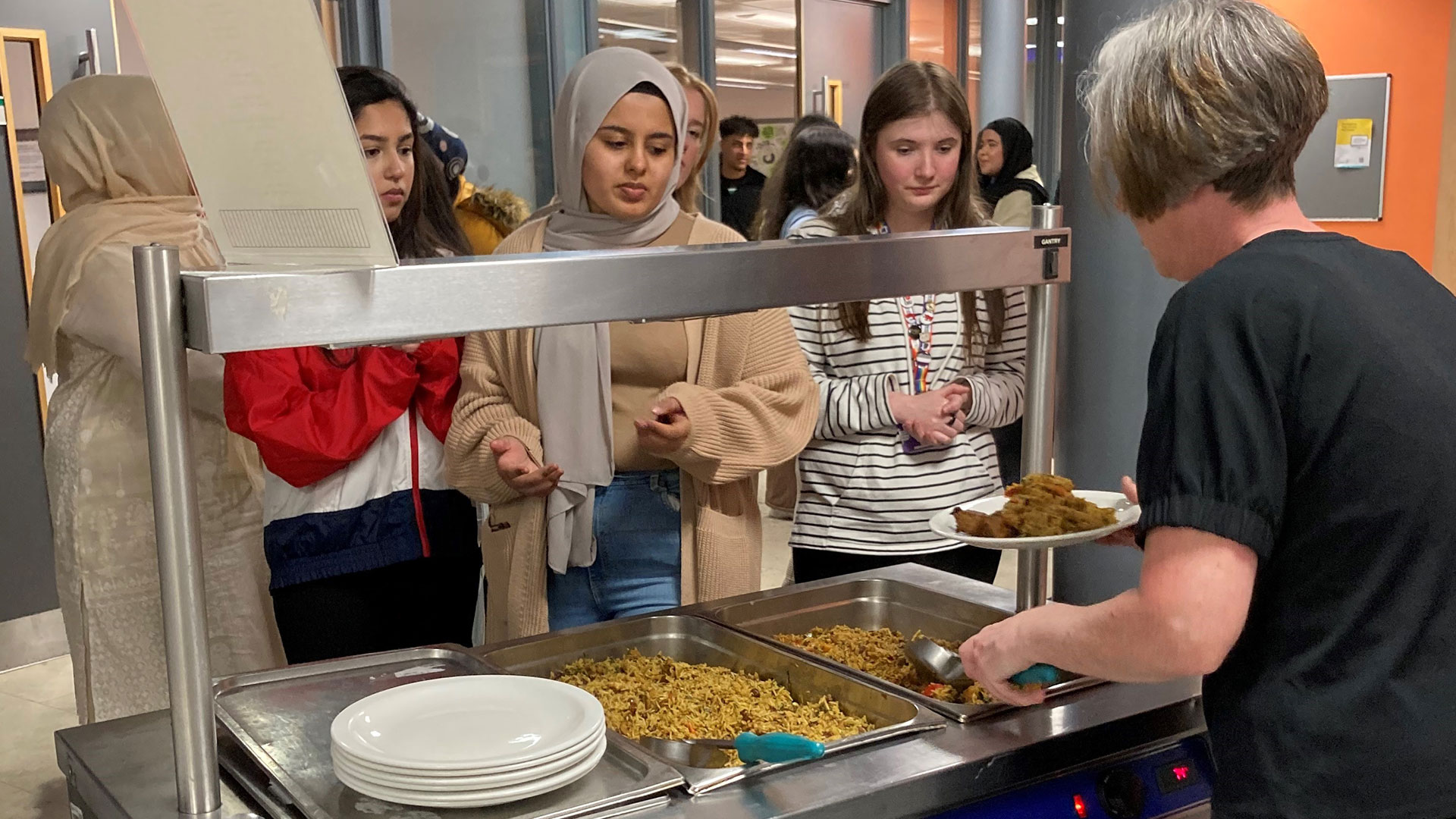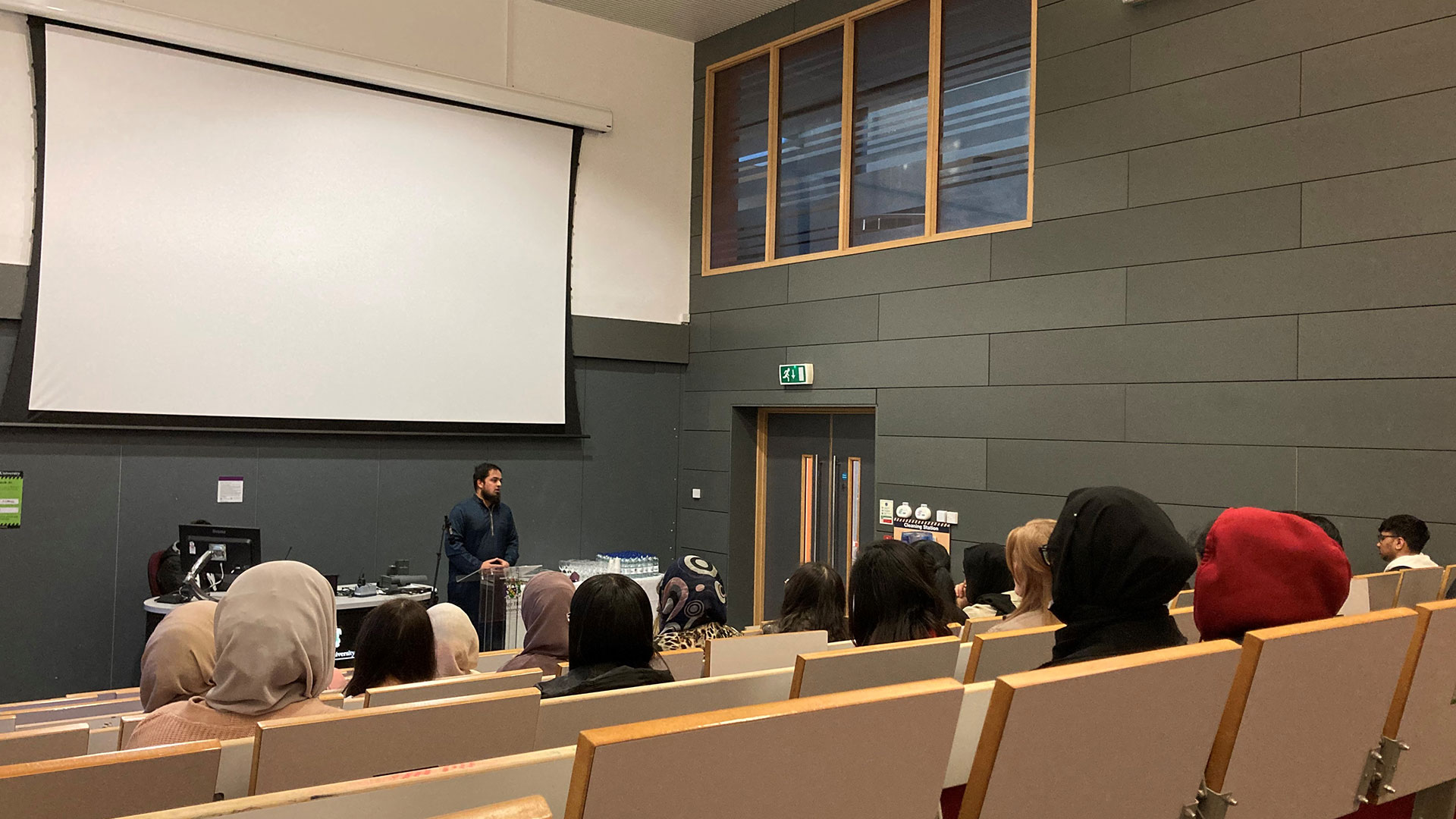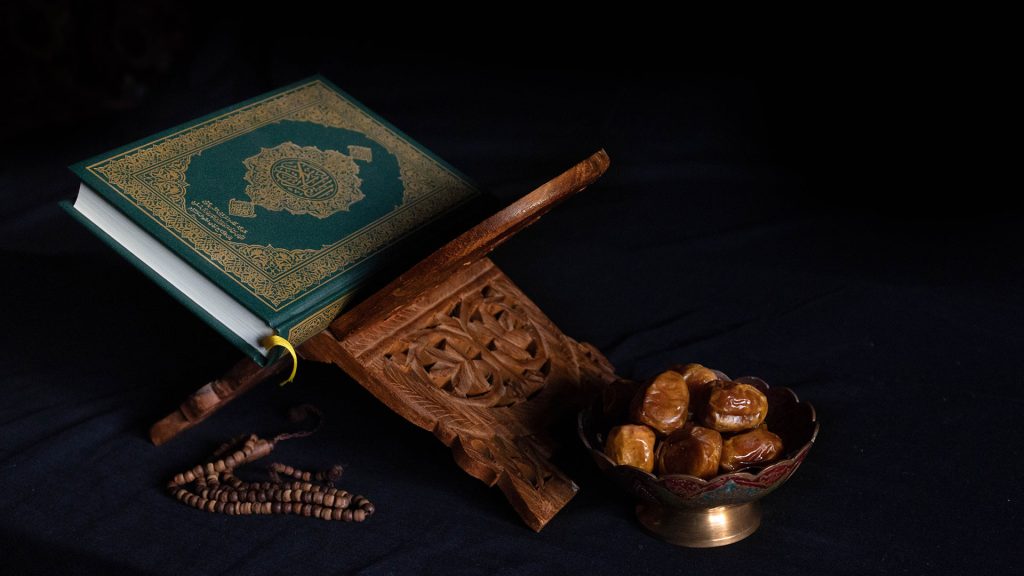Ramadan
Ramadan is a holy month of fasting, introspection and prayer for Muslims, the followers of Islam. It is celebrated as the month during which Muhammad (PBUH) received the initial revelations of the Quran, the holy book for Muslims. Fasting is one of the five fundamental principles of Islam.
When is Ramadan in the UK?
The lunar calendar rotates by roughly 10-11 days each year, meaning that the exact dates of Ramadan change on a yearly basis. All dates and times are subject to confirmation and sighting of the moon. See our inclusion calendar for this year’s date and more information.



In 2022, the University celebrated its first Iftar. An Iftar is the meal that Muslims have to break the fast with each night during Ramadan. The Islamic Society invited a speaker from a mosque in Manchester to talk to them about Ramadan and then we arranged for a meal to be served at 8pm after sunset.

Why is fasting so important?
Fasting during Ramadan is one of the Five Pillars of Islam. It was obligated in the Qur’an and is expected that all able Muslims (those who are mature and in good health) should fast from sunrise to sunset each day during the month of Ramadan.
During this time, fasting is more than just abstinence. it is a means of worship and for Muslims to feel a closer and deeper connection with Allah (SWT). Fasting allows each individual to understand what it means to go without and to learn patience with oneself and those around them, as well as compassion for those less fortunate.
Ramadan is more than just fasting. It is normally a time that Muslims have a greater focus on charity and on prayer. Fasting also includes not drinking any water during the day and it normally goes beyond fasting from food and drink, it includes abstaining from smoking, taking medication and sexual activity during sunlight hours too, also abstaining from negative thoughts.
Eid al-Fitr meaning ‘Festival of Breaking the Fast’, is the important holiday that follows the month of Ramadan. Celebrated for up to three days, Eid al-Fitr does not begin until the sighting of the moon.
Guidance
Advice for staff supporting students during Ramadan
Our Family origin, Ethnicity and Religion toolkit aims to improve staff confidence by enabling staff to gain a deeper understanding of cultural diversity, ethnicity and religion.
Fasting during studies, revision and exams can be a challenge and it would be expected that students may be more alert and able to concentrate better in the morning as they will have eaten just before sunrise. Try to structure work in a way that can support those who are celebrating Ramadan.
Students who might not appear to pray normally might do so during Ramadan so staff might notice more of a demand from students to observe prayer time.
Advice for Muslim staff
If you are a member of staff who is fasting and celebrating Ramadan, please speak to your line manager about any adjustments that can be made.
Advice for Muslim students
- Drink well – hydrate well for the long study days. Dehydration can lead to tiredness, headaches and lack of focus/concentration.
- Energy foods – eat high energy, slow burn foods for suhoor (starting your fast) that can give you energy gradually throughout the day.
- Breaks – take regular breaks to reflect and take time for yourself.
- Do it together – if you are away from home for Ramadan for the first time, it can be daunting and isolating fasting and having iftar alone. Consider joining the Islamic Society, forming a study group with others who are fasting or having iftar with a group. Sharing experiences and supporting each other can make the month easier and more enjoyable.
Useful links
Staff
Students
If you are a student or staff member you can get support from the Faith and Community Service.
Other resources
- A healthy Ramadan – British Nutrition Foundation
- The Muslim Council of Britain – Resources
Faith and community
The faith and community service at Edge Hill University is available to all students and staff.